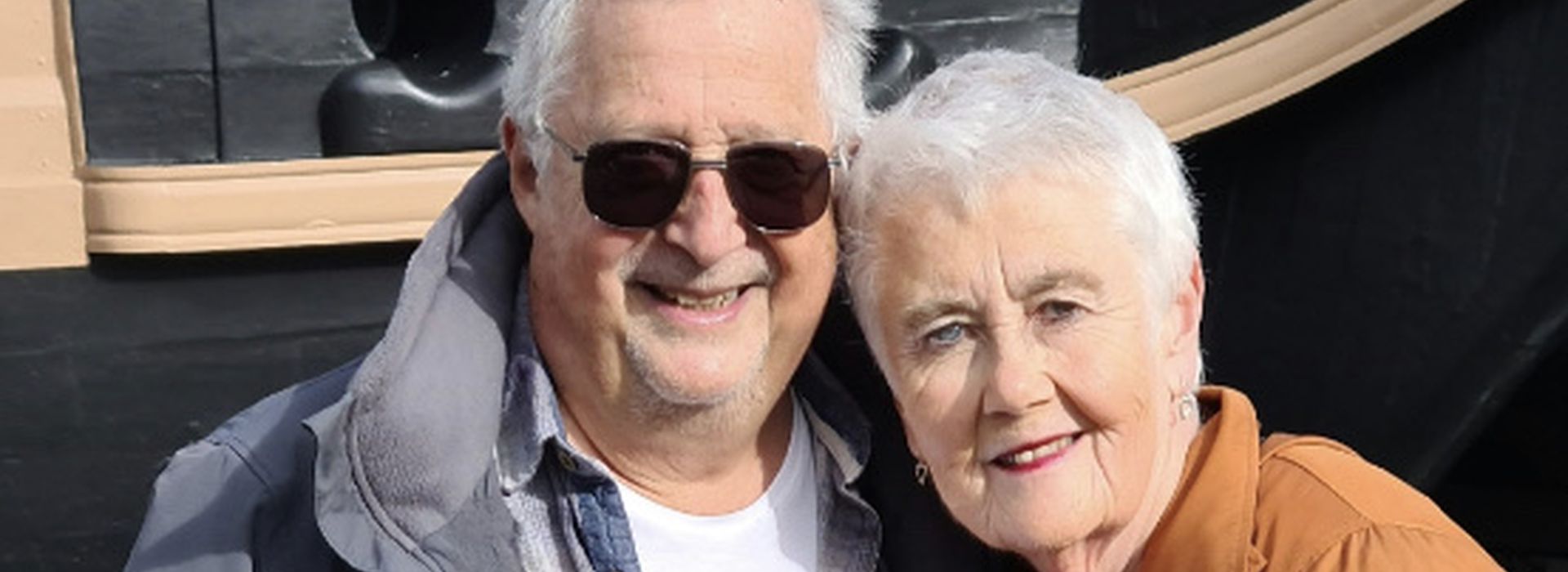Monday 12 February 2024
Maggie's, Cardiff

My diagnosis was a shock. No one seemed to be concerned about my symptoms, not my GP, nor my consultant. Then suddenly I was diagnosed with incurable prostate cancer.
I started my working life as a journalist. I moved into a PR career in local government and worked my way up to the Head of Comms. For the last eight years I’ve been working as a life coach and in public speaking. I am turning 73 this month.
Those first few weeks for me were chaos and panic. I was so scared. I’m a life coach, so I felt I should have been able to deal with this, but all I wanted to do was run away and hide.
I have two grown-up children. When I told them about my diagnosis, they both came rushing to see me for some quality time with their dad. Just the three of us.
We went out in Cardiff and had a meal. We then went to a comedy club and stayed out late, drinking and being silly together. I went to the loo and ended up falling down the stairs! I felt like a very drunken fool. It was the perfect day.
Next came prostate biopsies, colonoscopies, MRIs and CT scans. I was being poked and prodded, things cut out of me. My life became hospitals and tests, phone calls.
My oncologist gave me lots of paperwork, leaflets, advice, tips. It was overwhelming.
One of the leaflets though was for Maggie’s. My wife’s name is Maggie, and she said we should go; I wasn’t sure. She said, “I’ll be coming with you. We’ll go together and have a look round”.
We arrived at this beautiful building. It was so welcoming, and before I knew it, we were sitting down, having a cup of tea and a chat. No part of it felt awkward.
The first time I went to the men’s group at Maggie’s, I brought my wife with me. She waited outside for me. When I came out at the end she said, “You look completely different. I am so glad you came.”
Once, I suddenly got a hot flush in the middle of a group session, and another man opened the door and stood in the garden because he also had a hot flush. I felt so reassured.
Talking to the other men made me realise we all belong to a club that none of us want to be a part of but we’re in this together.
Having prostate cancer means you need to go to the toilet all the time. Whenever I would get near home, I would need the loo, and you get to your front door in an overwhelming panic to turn the key and make it to the toilet before you wet yourself. I told one of the other men about this and he said, “You know that’s called front door syndrome. It’s a real thing”.
I never would have spoken to my consultant or oncologist about that, but it felt so validating that someone else had experienced this. I can have these conversations with my wife, but it’s different talking to other men.
I am currently on hormone therapy. I take pills every day and I have a jab every three months as part of my treatment.
Before all of this I was fit and healthy. Now I am constantly tired, I go to the toilet all the time, I get hot flushes and mood swings, and I find myself suddenly bursting into tears with no control over it. There are some days when I feel really low and alone.
Everyday life has gotten more difficult. All these little things add up and it gets very draining. My wife and I had a healthy sex life, even in our 70’s. We don’t anymore.
My whole life has been turned upside down, but this has been the biggest impact.
I feel guilty about that. It’s like a huge part of my relationship has been removed. There’s no desire.
My wife Maggie’s son died from cancer when he was twenty years old. I feel guilty that she has to go through it again. My wife is the strongest woman I know, and she would never admit that it’s been difficult for her.
That’s why I wanted her to get some support. I worry that she hasn’t got many people to talk to about it. Now she is going to see a counsellor, and I’m so pleased she is getting some support as well.

Men need to make sure they are getting checked for prostate cancer, but also, women need to encourage the men in their lives to do it too.
I met my friend for a coffee, and I said to him I don’t know whether to tell people about my diagnosis. He said, “Why wouldn’t you?”
I told him I didn’t want people to feel sorry for me or take pity on me. He said, “let’s put it another way. If you telling people encourages one other man to get checked, why wouldn’t you do it?”
He was right. Now I write on Facebook and LinkedIn, and I have a blog. It has been a rollercoaster for me, but talking about it helps. I am talking to lots of other men who are going through the same thing.
My message is this: get yourself checked, because there are no obvious symptoms. Not getting checked won’t matter – until it does.
Our cancer support specialists, psychologists and benefits advisors are here for everyone with cancer, and all the people who love them.
Come and see us at your nearest Maggie’s, call us on 0300 123 180 or email us at enquiries@maggies.org
To find your nearest Maggie's centre, enter your postcode or town below.
Stay up to date with our news and fundraising by signing up for our newsletter.
Sign up